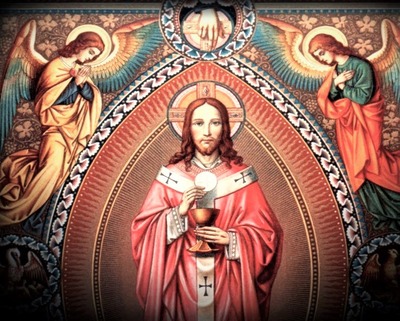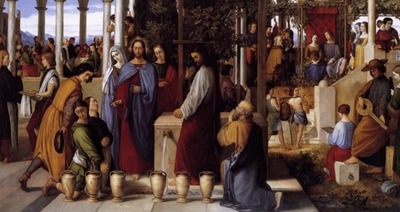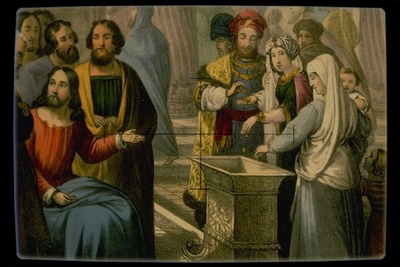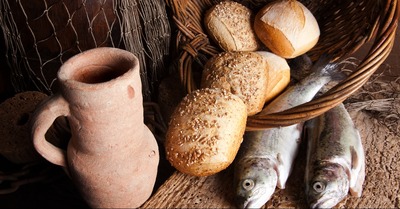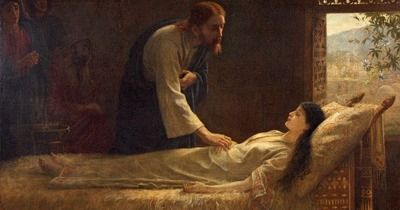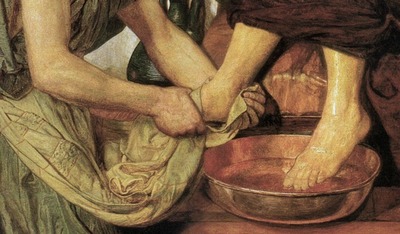February 14, 2024
|by N W
|
0 Comments
|
Charity, Family, Father Nixon, Generosity, Humility, Lent, Prayer, Repentance
Ash Wednesday
February 14, 2024 — Year B
Readings: Jl 2:12-18 / Ps 51 / 2 Cor 5:20-6:2 / Mt 6:1-6, 16-18
by Rev. Nixon Negparanon, Pastor
There is this beautiful saying which is very fitting to our celebration today. It says, “Let today be the day you give up who you have been for what you can become.” What do we need to give up today in order for us to become the person that is pleasing before the eyes of the Lord?
Today we celebrate Ash Wednesday and the beginning of Lent: forty days of preparation for the coming of the Lord’s passion, death, and resurrection, which we call the Pascal mystery. Forty is a very important number, because we know that, when Jesus was tempted by Satan, He was there in the desert for forty days and forty nights to prepare for His public ministry. During that time Jesus encountered a lot of challenges and temptations.
After the homily, we are going to receive the ashes, which are a sign of our repentance. This is also a reminder of our human weakness, that we are all in need of God’s mercy. When we receive the ashes, there are two formulas that will be said. The first one says, “Repent and believe in the Gospel,” and that can be found in Mark 1:15. The second formula that we are going to use is, “Remember you are dust and to dust you shall return,” and that can be found in the book of Genesis 3:19.
Ashes remind us of our humanity: that we are all created by God. That’s why in Genesis 2:7 it says, “Then the Lord God formed man of dust from the ground and breathed into his nostrils the breath of life, and the man became a living creature.” Here we can see, brothers and sisters, that when God created us, He created us from the dust, and because we came from dust, this is also a good reminder for us not to be proud. The scripture lets us continue to remain grounded, to be humble.
But in spite of the fact that we came from dust, of all God’s creations, He only breathed the breath of the Spirit on man. That’s why we are all so special in the eyes of God. Hence the formulas that are used as we receive the ashes, “Repent and believe in the Gospel,” and “Remember you are dust and to dust you shall return.”
This may lead us to ask the question, what does this challenge us to do today? As we try to reflect on the words that we will be hearing soon, this helps us also understand the call of Lent. The word ASH can also be an acronym.
“A” stands for almsgiving. Our human weakness tells us that we only think of our own needs. Everyone always tells us: Think of yourself first before you think of others; just think of yourself. Our human weakness tells us we are always tempted to be selfish and greedy, to think of ourselves. That is why during the season of Lent we are reminded that we are all brothers and sisters in Christ, that we belong to one body of Christ. That because we are one body, we need to think of others also. That’s why we are encouraged during the season of Lent to give.
Our gospel today reminds us that when we give, we should not let our left hand know what our right hand is doing. There are people who, when they give, just seek to be praised. Of course, that’s not what our gospel tells us. When you give, do it in secret; do not let your left hand know what your right hand is doing. This tells us that when we give, our giving must be inspired with true love and brotherhood.
“S” stands for sacrifice. Worldly people will think that suffering, or any form of sacrifice is worthless. Comfort, happiness and physical satisfaction are all they are looking for. And that’s what the world tells us: satisfy your thirst, satisfy your hunger, satisfy your longings. We as Christians are taught that suffering can be valuable if we offer it with the Cross of Christ. Our pains, our problems, sufferings in life can only be meaningful when we learn to unite all our problems and sufferings with the sufferings of our Lord Jesus Christ.
Jesus reminded us in the gospel of Saint John, chapter 15, that there is no greater love than to lay down one’s life for a friend. That’s true love. Maximilian Kolbe, a Polish priest also reminded us that there is no love when there is no sacrifice. That’s very true. That’s why for us Christians we can only show a genuine love when sacrifice is there.
That’s applicable to anybody that we deal with, even between husbands and wives. You say I love you, honey. I love you, sweetheart. You must be willing to sacrifice, willing to forgive, willing to understand, willing to remember the promises that you made during your wedding day: “I will be with you in good times and in bad.” That’s the promise you made a long time ago that you cannot deny. It’s like saying, “Show me your flaws, and I will not leave you, I will be there, I will be here.” We are bound by the promise that we made not only in front of the community but in front of God, I will not leave you, I will be with you whatever will happen. That’s one way of showing our sacrifice.
When we give something that hurts us, that is true giving. You should learn to sacrifice yourself. Learn to forget yourself in order to see the needs of others. And that’s a Christlike act.
Lent also encourages us to fast. And when we fast, we fast not only for health reasons or for beauty. That should not be our intention in fasting: I want to be healthy. Brothers and sisters, when we fast or when we sacrifice something, when we don’t eat, when we don’t purchase something, that’s a sacrifice. Our normal thinking will tell us that we save, we don’t purchase something we don’t eat in order for me to save.
But fasting tells us that when we don’t eat, what we don’t eat belongs to the poor. Every time we fast, we should put something aside for the poor and remember those people who have nothing to eat. That’s why, during the season of Lent, we are given the Rice Bowl container, so that every time we fast, we put an amount of money in there. That’s our way of expressing our solidarity, our charity towards poor people.
We don’t only fast, but we also feel how it is to be hungry. Fasting is about giving. Fasting is also an invitation for us to conquer our selfishness. That’s also the main purpose of fasting. It’s a time during the season of Lent to combat our cravings and greed. This is the best time for us to learn to discipline ourselves. To fight against our cravings and our desires.
“H” stands for humility. How do we humble ourselves? The answer is through prayer. Prayer is an act of humility. Someone once said prayer is nothing but a humble acceptance of our total dependence on God. People who pray wholeheartedly are people who realize that apart from God, we are nothing and we can do nothing. That’s why we need to pray, brothers and sisters, because our prayer will make us realize that we are really nothing and we can really do nothing without God.
People who do not pray, even if they don’t say it, are proud because they think that they can survive life without God, that things can be well even without God. That’s where prayer is very important.
Of course, our gospel also today reminds us that when we pray, we don’t pray like the hypocrites, just to win the praise of others. Our intention in praying is to give praise and glory to God. Not to win, not to receive praise from other people. Yes, it is true that we can pray everywhere, we can pray even in our workplace, in the marketplace or wherever we are, but let us always remember that we need to pray in the silence of our hearts. We don’t need to show it to other people that we are praying. Even in our own silence, even in the midst of noise or chaos, we can continue to pray in the silence of our hearts.
Brothers and sisters, let us take the challenge. Let today be the day you give up who you have been for what you can become.
KEEP READING
 540-586-8988
540-586-8988 

